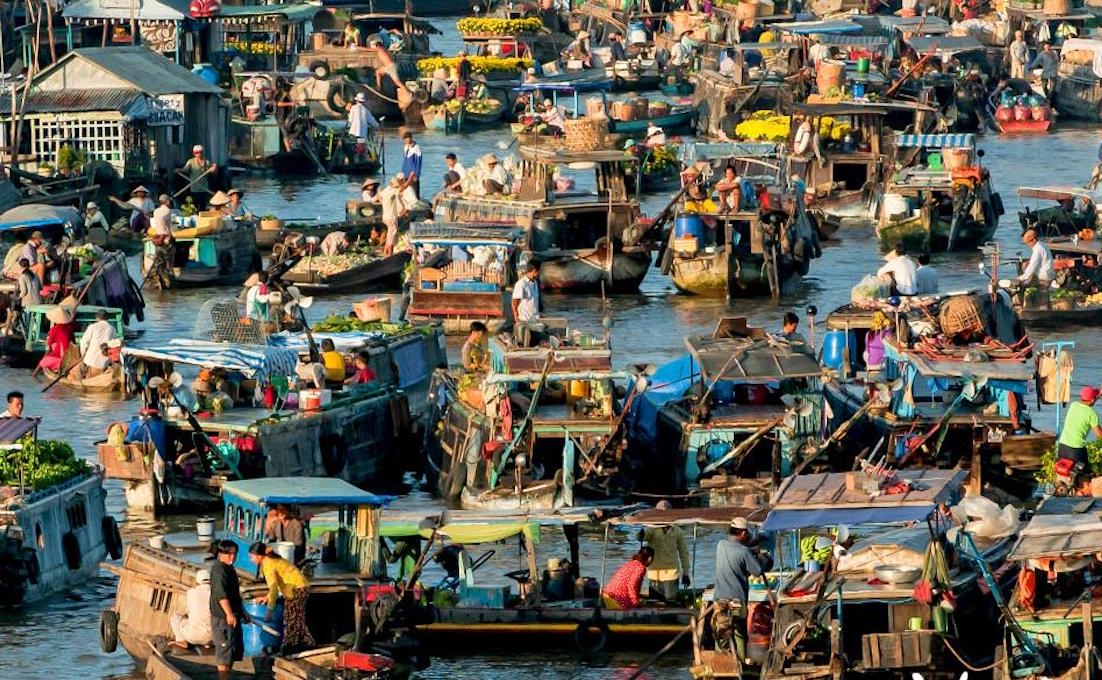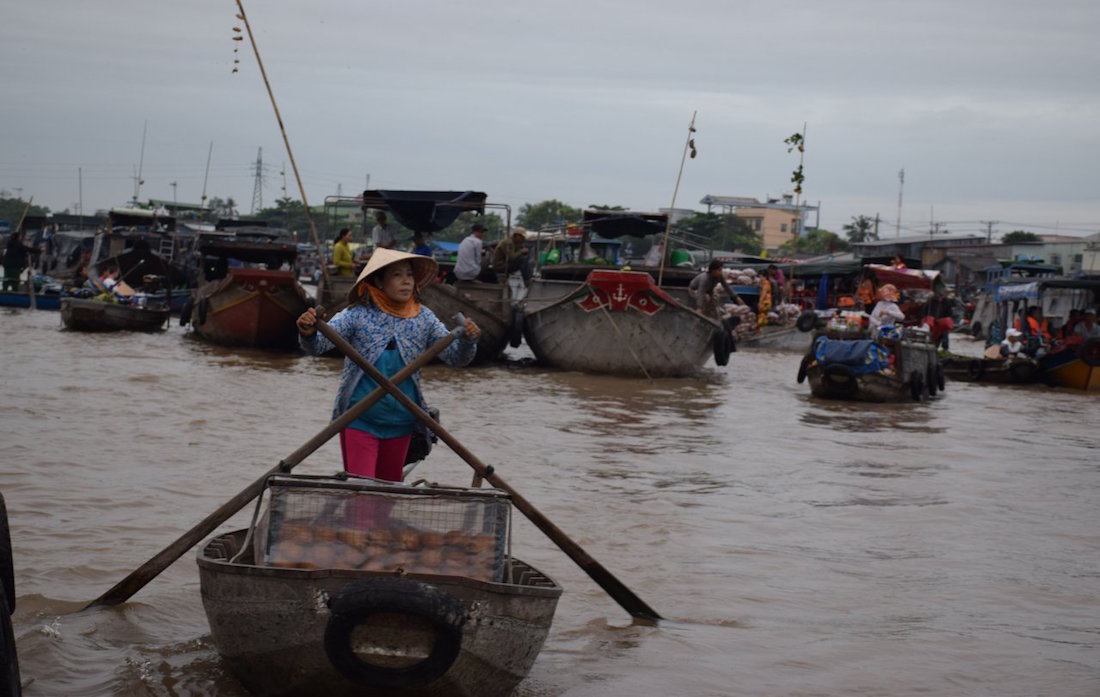The environment in Mekong Delta is severely being affected by hasher natural disasters, water pollution and natural resources depletion, said a scholar.
At a workshop on climate change adaptation capacity building for the region held in Can Tho city on December 28, Ho Thi Thu Ho from the Can Tho University attributed these issues to global climate change, rough interventions in the Mekong River’s course made by countries along the river, and low environmental awareness of the public.
Agreeing with Ho, Trinh Le Nguyen, Director of the Vietnamese NGO People and Nature Reconciliation (PanNature), pointed to the worst drought in a century that hit the delta last year. In 2017, the region went through its annual flooding season, finding almost no resources coming from the upstream areas, he added.
Upstream dams have led to a reduction of alluvium, thus causing landslides across Ca Mau, An Giang, and Tien Giang, Nguyen said.
Nguyen Minh Quang from the Can Tho University noted that two third of local economic projects pose high risks of pollution, while rapid urbanisation has created more problems in waste treatment.
He suggested communications activities as a solution to raising public awareness and urged stronger actions of the Mekong River Commission against upstream hydropower projects.
Participating experts put forth a number of measures, which included developing farming models suitable to saline environment in Ca Mau and Ben Tre instead of trying to desalinate local water sources.
They advised farmers to follow high-tech agro-forestry and green agricultural practices.
They also asked the authorities to better handle the issues of rapid urbanisation and migration.-VNA





